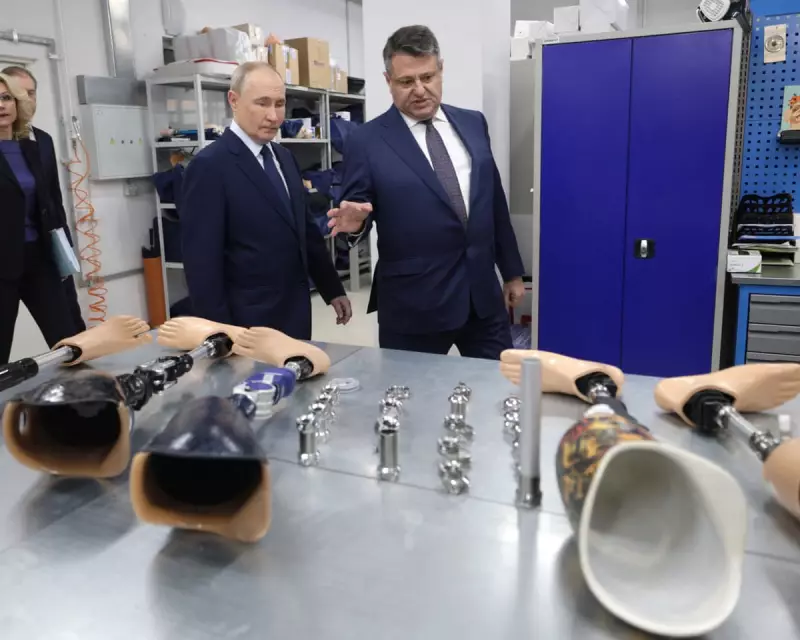
A shadow industry is rapidly expanding across Russia, born from the grim arithmetic of its war in Ukraine: the mass production of prosthetic limbs for thousands of amputee soldiers returning from the front.
An investigation into this burgeoning sector reveals a system struggling under immense pressure, often delivering substandard artificial limbs to veterans. While official figures on military amputations are a state secret, estimates from medical NGOs and Western intelligence suggest the numbers run into the tens of thousands, creating an unprecedented demand for prosthetics.
A System Overwhelmed by Demand
The sheer volume of casualties has overwhelmed traditional suppliers, forcing the Russian government to fast-track domestic production. Dozens of new workshops and factories have sprung up, many operating with minimal oversight. The result, according to multiple sources within Russian rehabilitation centres, is a dramatic drop in quality.
Veterans and medical professionals report limbs that are poorly fitted, mechanically unreliable, and made from low-grade materials. Many artificial legs and arms break down after just a few months of use, requiring constant repairs and leaving soldiers in pain and immobile.
From Artillery to Artificial Limbs
In a stark illustration of the industry's makeshift nature, some former arms manufacturers have hastily retooled their production lines. Factories once dedicated to producing artillery shells or military optics are now attempting to manufacture complex myoelectric limbs, often without the necessary expertise.
This frantic pivot has led to what one medical expert called "a catastrophic compromise on quality," where the primary goal appears to be quantity—getting any form of limb to a soldier—rather than ensuring it is fit for long-term purpose.
The Human Cost of a Flawed System
For the veterans themselves, the failing prosthetics represent a second betrayal. After suffering life-changing injuries on the battlefield, they are now left to navigate a bureaucratic and underfunded rehabilitation system. Many are forced to rely on charitable organisations or their own funds to seek adequate care or source better prosthetic limbs from abroad, an option increasingly difficult due to international sanctions.
The situation paints a bleak picture of the long-term societal cost of the war for Russia, which now faces the immense challenge of supporting a generation of permanently disabled young men with a system that is already failing to meet their most basic needs.





